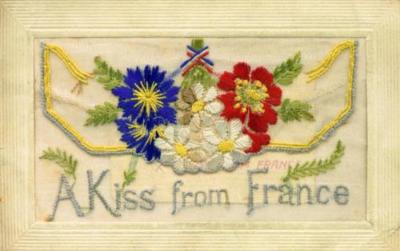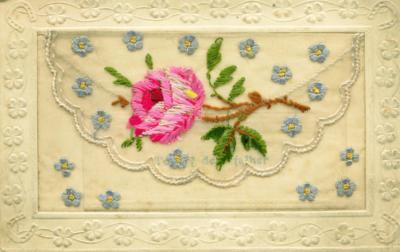The Durham Light Infantry Tribute Page
The Battles of the Somme 1916The Battle of the Somme started in July 1st 1916. It lasted until November 1916. For many people, the Battle of the Somme was the battle that symbolised the horrors of warfare in World War One; this one battle had a marked effect on overall casualty figures and seemed to epitomise the futility of trench warfare.For many years those who led the British campaign have received a lot of criticism for the way the Battle of the Somme was fought – especially Douglas Haig. This criticism was based on the appalling casualty figures suffered by the British and the French. By the end of the battle, the British Army had suffered 420,000 casualties including nearly 60,000 on the first day alone. The French lost 200,000 men and the Germans nearly 500,000. Ironically, going over the top at the Somme was the first taste of battle many of these men had, as many were part of "Kitchener’s Volunteer Army" persuaded to volunteer by posters showing Lord Kitchener himself summoning these men to arms to show their patriotism. In the course of the battle, 51 Victoria Crosses were won by British soldiers. 31 were won by NCO's and 20 by officers. Of these 51 medals, 17 were awarded posthumously - 10 to NCO's and 7 to officers. This young man was just 17 years of age, thrown into a living hell, one can only try and imagine the horrors of battle that he had to endure, until on November 5th 1916, his life came to an abrupt end as part of The Great War, it was also called The War to end All Wars. Joseph was enlisted in The Durham Light Infantry and posted to the 1st/8th Bn. this was a part of the 151st (Durham Light Infantry) Brigade and that was part of The 50th (Northumbrian) Division. The Division was a formation created by the establishment of the Territorial Force in 1908, it moved to France 16th April 1915, and served with distinction on the Western Front throughout the war. The Division took part in in all the major battles in WW1. The 3rd and 4th Battalions Durham Light Infantry exchanged numbers and were designated Special Reserve Battalions, they trained the bulk of recruits for the Regiment during 1914-18 War, there were depots at Sunderland and Gateshead, Joseph would have been at one of these and after training he would have been troop shipped to Belgium and after another brief spell of training sent up to the front.
British Troops Going Over the Top, First Day of the Somme, 1916Soldiers in the leading waves were required to carry about 70 lb (32 kg) of equipment; rifle, bayonet, ammunition, two grenades, entrenching tool, empty sandbags, wire cutters, flares, etc. The later waves would also be burdened with the necessary paraphernalia for consolidating the captured trenches such as barbed wire & stakes. Viewed with the benefit of hindsight, these tactics were clearly misjudged. The reasoning behind them was that the intense artillery bombardment was expected to destroy the German garrison so that all that was required of the infantry was to walk over and take possession of the objectives. So it was during this battle at some point Joseph lost his life, his Mother Elizabeth Nicholls had written on 26th July 1917 to The Agency Internationale Prisoners Geneva, this suggests that Joseph had earlier gone missing and may have been taken prisoner.
The letter is as follows: Dear Madam, Referring to your letter of 26th July 1917, respecting Pte Joseph Nicholls 6774, Durham Light Infantry, (late 4152) B Company, Bombing Section, we beg to enclose as a result of our enquiries in different camps in Germany the statement of Pte Albert Barker 4072 of the same unit, prisoner at Gustrow Germany. (The letter goes on to say how they regret the news etc, but unfortunately we do not have copies of Pte Barkers staement) In 1919 his mother received a sum of seven pounds
as a War Gratuity from The Secretary of State for War.
|
|||||||||||||||||||||||||||||||||||
Here Joseph is seen very probably after Passing out Parade at the Depot, it looks as if he was awarded "stick" as best recruit.
|
Joseph sent home some beautifully embroidered French postcards to his family.
On rear - From your loving son |
Sent to --- his sister aged 13 |
 |
|
To Alma - With heaps of kisses from your Brother Joe |
|
 |
|
On the rear - With heaps of kisses from Joe |
|
 |
|
|
It was decided during World War One that all next of kin of service personnel who lost their lives as a result of the war would be presented with a memorial plaque and commemorative scroll from the King and country.The plaques were cast in bronze and were approximately five inches (125 mm) in diameter.On the plaque itself no rank was recorded as the intention was to show equality in their sacrifice.The troops referred to them as "The Dead Man's Penny".
|
|
|
Name: NICHOLLS, JOSEPH
The Thiepval Memorial commemorates almost 73,000 soldiers who died on the Somme battlefields between July 1915 and 20th March 1918 who have no known grave. From 21st March, casualties who are missing in this area are commemorated on the nearby Pozières Memorial. A high proportion of the names at Thiepval are soldiers who died on 1st July 1916 – the first day of the Battle of the Somme. Located at one of the key sites on the Somme battlefield, it was designed by Sir Edwin Lutyens and was unveiled in 1932 by the Prince of Wales. Thiepval remains one of the most impressive memorials on the Western Front and can be seen for miles around; it is the largest of all the memorials to the missing on the British sector of the Western Front, being 150 feet high with base 123 by 140 feet. |
Joseph's Medals - WW1
British War Medal |
Victory Medal |
In May 2007, Joseph's medals, cards and letters will be donated by John Mather to The Durham Light Infantry Museum.
 |
Thanks for the Sacrifice |
|
It means a lot to hear about the men who died for me, The men who fought for freedom, and to keep democracy, Men we say, when many were nowt but some mother's young young lad, Who sacrificed themselves, to ensure the freedom we all have had. Can they ever be thanked enough, or loved beyond compare? Brother, Father, Husband, Son, we all lost someone there. Not all of them won medals. Not all of them returned, But every single one of them, our respect they surely earned. For the bodies that lay at the waters edge, or face down upon the sand, For the men that had to pass their pals, unable to lend a hand. We all say thankyou, this alone will never suffice To say how much appreciation there is, for your ultimate scarifice. The foreign sand soaked up your blood, and sealed your painful wounds, Leaving, yet another soul-less shell, upon this sandy tomb. But you didn't die in vain lads, you didn't die in vain For because of your heroic deeds, the rest of us, still now, we gain. So may you lie in peace, boys, and have eternal rest, For each and every one of you did your very best. For all the men who lived or died in this, an awful war, Whether it be here at home, or upon some distant shore. Simple words are not enough, but I'm afraid they will have to do, So to all the men I simply say: Thank you, Thank you, Thank you. Janice F. WardCopyright: J.Ward |

Copyright of Text - Webmaster - Keith Petvin-Scudamore
Copyright of pictures - John Mather
Back to: DLI Tribute Home Page
Back to Home Page
















